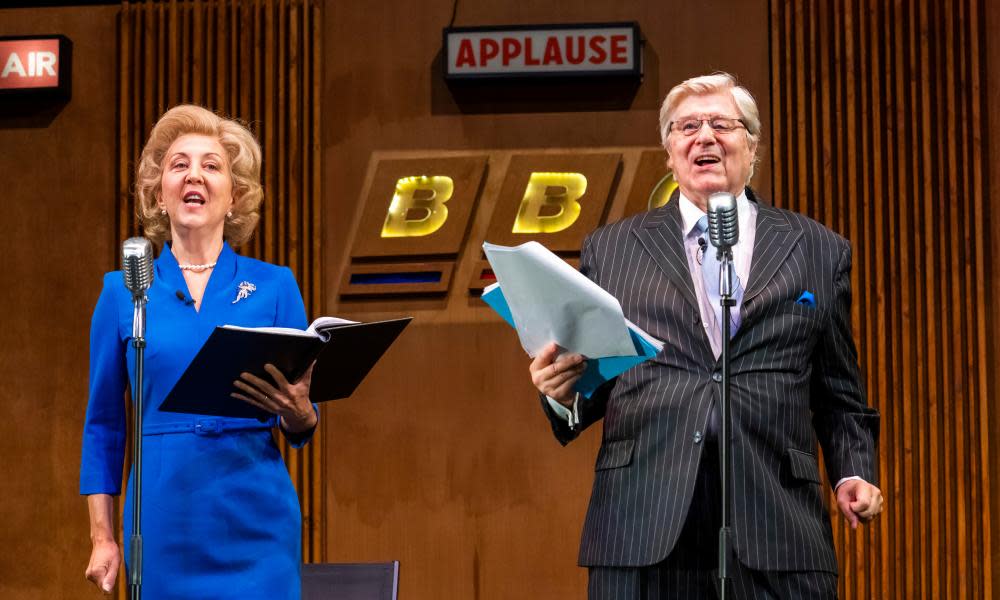Maggie & Ted review – two Tory prime ministers, one long spat

The Tory prime ministers elected in the 1970s – Edward Heath and Margaret Thatcher – seem opposites. His thwarted four years in power were dwarfed by her brutally influential 11, during which she wrecked the trade unions that broke him, while imperiously renegotiating the UK-Europe relationship her predecessor sealed.
However, Maggie & Ted, written by Michael McManus, a former aide to Heath, engagingly emphasises similarities. Sharing a grammar school background during a brief Tory eschewal of Old Etonian leaders, both took voice lessons to pass in the party, were loners there due to gender and extreme social gaucheness, and, for some years, political allies, including, initially, on Europe.
To allow short pop-up runs – a London fringe week pre-lockdown now followed by two West End nights – this play has the conceit of a radio recording, six script-holding actors at mics. The play is a capacious warehouse for the best one-liners and anecdotes from McManus’s own observation and biographies by Charles Moore, Philip Ziegler and John Campbell, split with bolder flourishes including sub-Shakespearean ghosts.
Clare Bloomer’s Thatcher exactly catches that concocted voice, designed to suppress class and gender, but ambushed by rogue notes. Martin Jarvis’s slumped, gruff Heath embodies Ziegler’s observation of his use of cruel humour as dagger and shield. The astonishing Jon Glover, a walking oral history project, shows impressionist’s perfect pitch as dozens of walk-ons, from Winston Churchill and Enoch Powell to Dame Edna Everage and Boris Johnson.
Wider appeal may be limited by the focus on an old intra-Tory row, underlined by opposite sides being represented in the first-night audience by Theresa May and Dame Andrea Leadsom. And McManus exaggerates, for dramatic purpose, the endurance in the Europe debate of Thatcherite and Heathite wings, ignoring the crucial complicating factor of David Cameron introducing Blue Blairism. As the central characters were dead by the EU referendum, the play lacks a final act, although McManus includes a brutal cameo of Johnson, shown to represent no tradition except his own ambition. This enjoyable Westminster vocal anthology deserves further hearings.
Maggie & Ted is at the Garrick theatre, London until 29 June.


